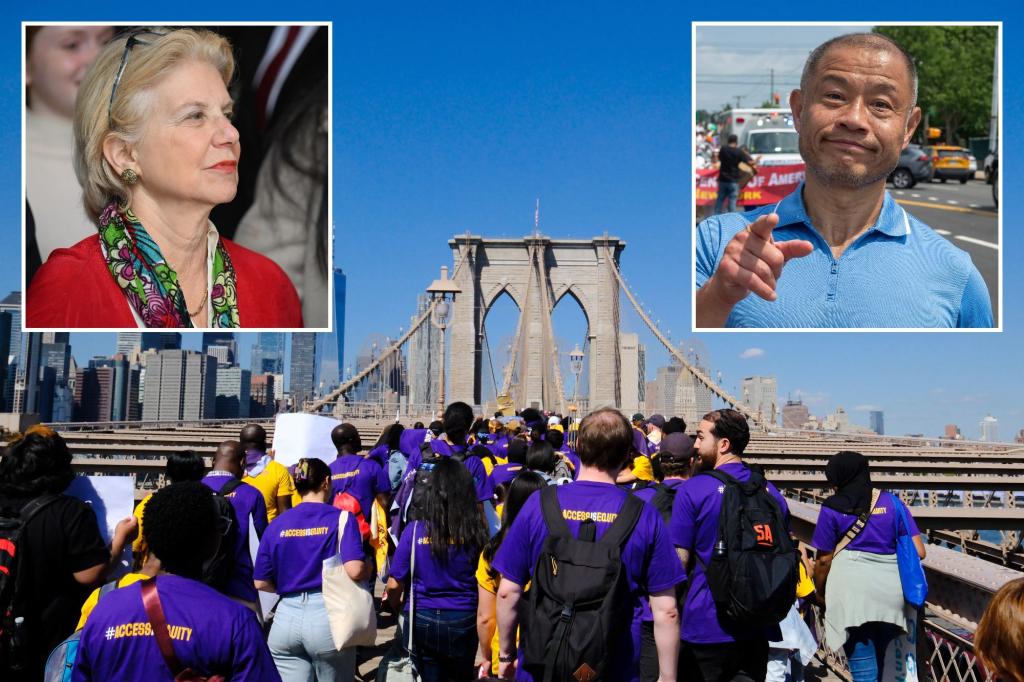Charter Schools Defend Rally Against Lawmakers’ Investigation Call
Charter School Officials Push Back Against Allegations of Impropriety
In a heated exchange that highlights ongoing tensions between charter schools and traditional public education advocates in New York, charter school officials have strongly rejected calls for an investigation into a recent rally that brought 15,000 parents and students to the Brooklyn Bridge. The controversy erupted after Democratic state Senators John Liu and Shelly Mayer, who chair influential committees overseeing New York City schools, urged state education officials to investigate whether the September 18 pro-charter school rally violated state law. The lawmakers expressed concerns that charter schools had canceled classes and potentially coerced families and staff to attend what they characterized as a “political rally,” describing it as “an egregious misuse of student time and state funds.” Their letter to State Education Commissioner Betty Rosa and SUNY Chancellor John King suggested the rally—which advocated for opening more charter schools—might have broken state rules or laws.
Charter school leaders responded forcefully in a letter signed Tuesday, arguing that the rally was “not a partisan display” but rather “the most fundamental expression of civic life—families demanding fairness, equity, and access to quality education.” They accused the senators of mischaracterizing legitimate advocacy as political campaigning and of dismissing the voices of thousands of participants, particularly those from Black and Brown communities who have chosen charter schools for their children. “Your letter to SUNY and SED was defamatory and dismissive of every one of us who have dedicated our lives to serving our City,” the charter officials wrote, adding that the lawmakers’ response “insults the families you serve and the dedicated teachers, staff and leaders who serve them.” The letter was signed by prominent charter school leaders including Rafiq Kalam Id-Din II of Ember Charter Schools, Rev. Al Cockfield Jr. of Lamad Academy Charter Schools, Bishop Raymond Rivera of Family Life Academy Charter Schools, and Emily Kim of Zeta Charter Schools.
The controversy reflects the significant role charter schools now play in New York City’s educational landscape. According to the NYC Charter School Center, there are currently 286 charter schools serving more than 150,000 students—nearly 15% of the city’s publicly funded school population. These schools, while publicly funded, are managed by not-for-profit operators and typically feature longer school days and school years than traditional public schools. Most charter school teachers are non-union, a factor that often puts these institutions at odds with powerful teachers’ unions. Charter advocates frequently point to data showing their students typically outperform peers at neighborhood public schools on standardized math and English exams, using such results to argue for expansion beyond the current cap on charter schools in the state.
In their letter, charter school officials turned the tables on the lawmakers, suggesting that if Liu and Mayer “truly care about equity and justice,” they would be investigating “why we still have an arbitrary charter cap that denies families choice” rather than “attempting to silence the voices of parents.” They criticized the senators for not holding hearings on failing public schools while targeting charter schools that demonstrate success. This counterattack highlights a fundamental tension in the education debate: charter advocates view themselves as providing quality alternatives to underperforming district schools, while critics worry about the diversion of resources from traditional public education and question the representativeness and methods of charter operations.
Senator Liu, when asked about the criticism, stood firm on his position. “The letter deserves an A in English language arts for its flowery rhetoric, but doesn’t address the issue that classes, for which state funding is provided, were cancelled for the rally that took place on a school day,” Liu said. He added that “evidence pointing to staff and family coercion warrants investigation,” doubling down on the allegations that prompted the initial call for an inquiry. The timing of the rally has political implications as well, coming just weeks before the November 4 general election for mayor, with Democratic nominee and frontrunner Zohran Mamdani having gone on record against lifting the state cap to allow expansion of charter schools.
This confrontation exemplifies the broader political and ideological battles surrounding education reform in America. Charter schools represent a movement toward school choice and alternative educational models that has gained significant momentum in recent decades, particularly in urban areas with historically underperforming public schools. However, they remain controversial, with supporters seeing them as innovative solutions that provide opportunities for disadvantaged students, while critics view them as undermining public education and potentially increasing segregation. The heated exchange between New York lawmakers and charter officials demonstrates how education has become a deeply contentious issue, where questions about resources, governance, accountability, and the very purpose of schooling intersect with concerns about equity, access, and the rights of families to choose what they believe is best for their children. As both sides dig in, the debate continues to shape the future of education in New York and beyond, with significant implications for students, families, educators, and communities.


